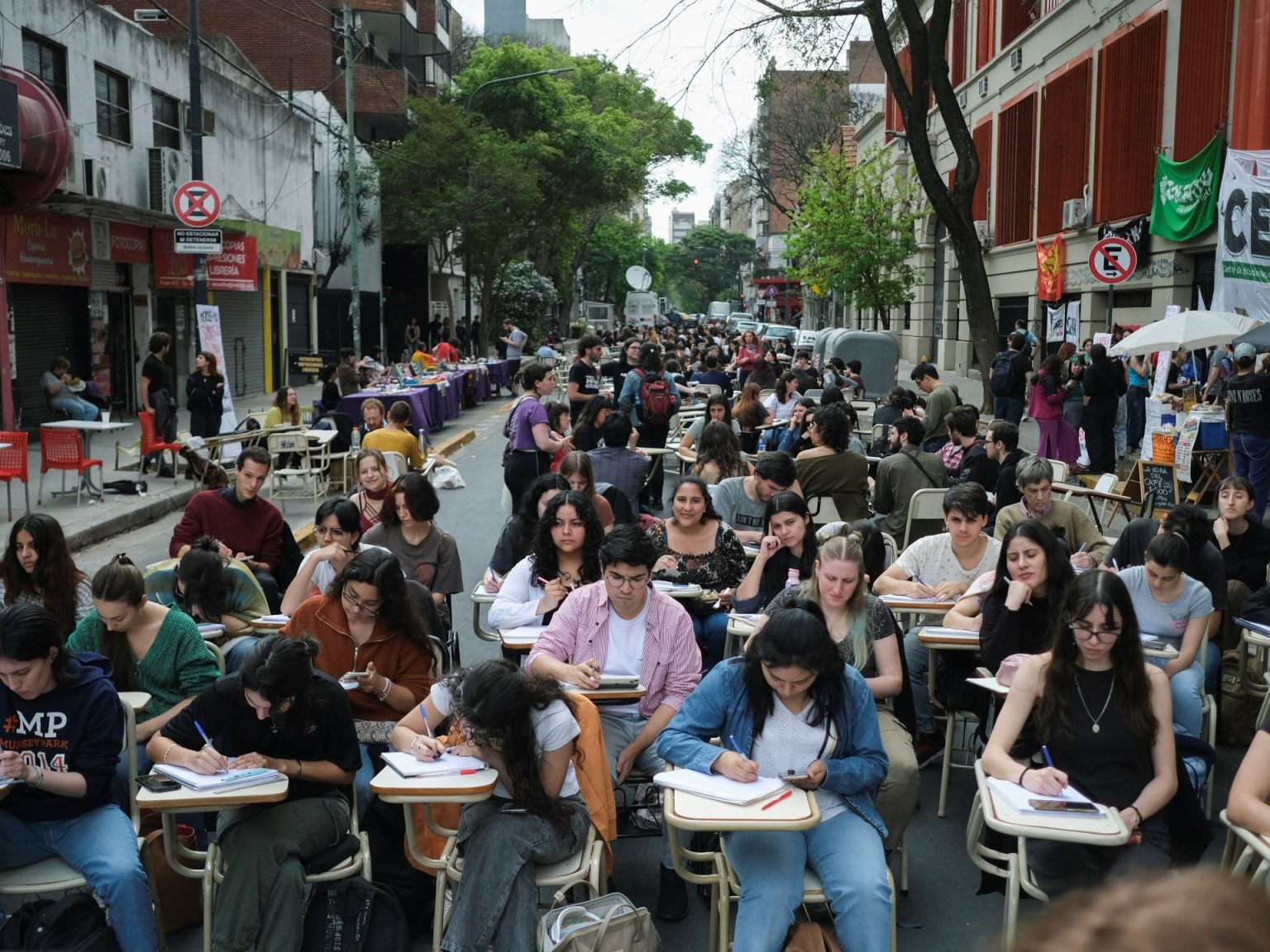Argentina’s lower house of Congress recently failed to overturn President Javier Milei’s veto of legislation aimed at increasing public university funding, despite mass protests against the cuts. The bill would have adjusted university funding to match the country’s high inflation rate of nearly 240 percent and help alleviate the economic crisis affecting the nation, where more than half of the population lives in poverty. Milei, a libertarian president who has implemented austerity measures since taking office, vetoed the bill, arguing that it would disrupt the fiscal balance needed to address the economic crisis.
The vote in Congress saw 160 parliamentarians in favor of the funding bill, 84 against it, and five abstentions. However, the proposal fell six votes short of the two-thirds majority required to override the president’s veto. Milei’s political party, though a minority in Congress, has formed alliances with conservative lawmakers to prevent the opposition from reaching the necessary threshold to pass the legislation. The president has been vocal about his plans to reduce public spending and has criticized the education system, dismissing the university funding bill as unjustified.
Students in Argentina have been rallying for increased investment in public universities, which are tuition-free for all residents. Protests outside Congress in Buenos Aires featured slogans advocating for the importance of education in preserving freedom. Many demonstrators, including psychology graduate Ana Hoqui, expressed concern over the fate of the education system and its accessibility to all. Hoqui credited the free public university system for enabling her to pursue a career in medicine and felt compelled to defend it against the proposed cuts.
In response to the veto and ongoing austerity measures, thousands of Argentinians have mobilized in protests across the country. In April, hundreds of thousands of people took to the streets to denounce reductions in public higher education funding, with the support of labor unions, opposition parties, and private universities. Teachers unions reported a million protesters nationwide, highlighting the widespread discontent with the government’s policies impacting education. The recent demonstrations in Buenos Aires and other major cities underscore the divided opinions on the necessity of preserving public university funding in Argentina amid economic turmoil.
The failure to overrule Milei’s veto of the university funding bill reflects the political landscape in Argentina, where the president’s far-right party aligns with conservative lawmakers to maintain control in Congress. Despite significant support for the legislation, the opposition fell short of the required majority to challenge the president’s decision. The standoff between the government and protestors advocating for public education highlights the broader ideological differences in the country’s approach to economic policy and social welfare. As Argentinians continue to mobilize for their right to education, the debate over public university funding is likely to remain a contentious issue in the political arena.


